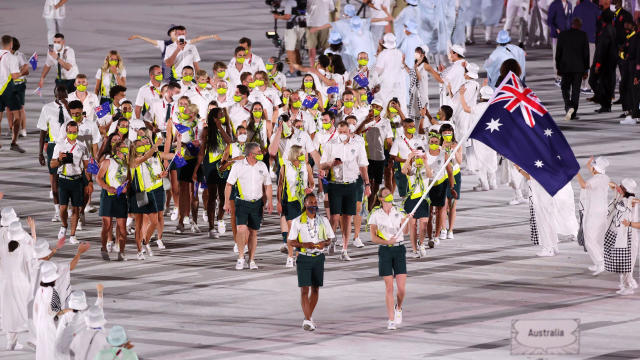Australia follows US in diplomatic boycott of Beijing Olympics
Australia will not send officials to the upcoming winter Olympics in Beijing, Prime Minister Scott Morrison said Wednesday, joining a US diplomatic boycott of the event.
China’s foreign ministry says no one cares whether individual politicians come to the Beijing Winter Olympics or not, amid a report that the Australian Prime Minister Scott Morrison is considering a diplomatic boycott.
Australia will not send officials to the upcoming winter Olympics in Beijing, Prime Minister Scott Morrison said Wednesday, joining a US diplomatic boycott of the event.
Canberra’s decision comes amid “disagreement” with China over a number of issues, including Australia’s foreign interference laws and a recent decision to acquire nuclear-powered submarines, Morrison said.
“Australia will not step back from the strong position we’ve had standing up for Australia’s interests, and obviously it is of no surprise that we wouldn’t be sending Australian officials to those Games,” he said.
The decision, which stopped short of preventing athletes from attending, comes a day after the United States announced its diplomatic boycott.
The US decision was taken over what Washington termed China’s genocide of the Uyghur minority and other human rights abuses.
Morrison also cited human rights abuses in the Xinjiang region and Beijing’s unwillingness to meet Australian officials for talks as key to Australia’s decision.
“There’s been no obstacle to that occurring on our side, but the Chinese government has consistently not accepted those opportunities for us to meet about these issues,” he said.
Over the last two years, China has introduced a raft of punitive sanctions on Australian goods in a fierce political dispute that has frozen ministerial contacts and plunged relations into the most serious crisis since the Tiananmen Square crackdown in 1989.
China has been angered at Australia’s willingness to legislate against overseas influence operations, to bar Huawei from 5G contracts, and to call for an independent investigation into the origins of the coronavirus pandemic.
Australian barley, coal, copper ore, cotton, hay, logs, rock lobsters, sugar, wine, beef, citrus fruit, grains, table grapes, dairy products, and infant formula have all been subject to Chinese sanctions.
Australia’s move to equip its navy with nuclear-powered submarines under a new defence pact with Britain and the United States widely seen as an attempt to counter Chinese influence in the Pacific region also infuriated Beijing.
China on the other hand says no one cares if politicians boycott Olympics
